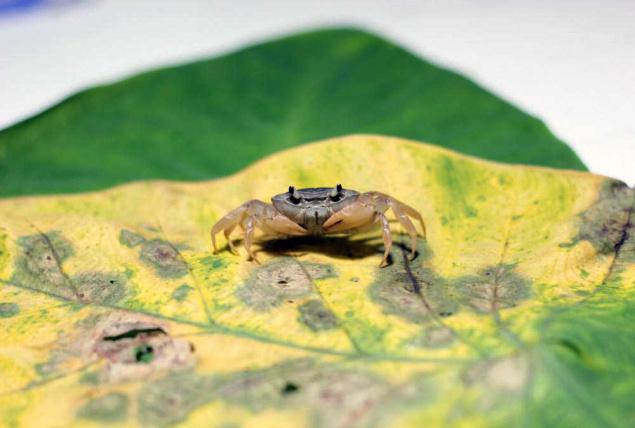
Several species of freshwater shrimps and crabs in the Western Ghats could be hurtling towards extinction, as taxonomic uncertainties and escalating human activities in their habitat pose major challenges to their conservation, scientists say.
A recent study on the conservation status of these poorly known species, published in the online version of the international journal, ‘Aquatic Conservation: Marine and Freshwater Ecosystems,’ reveals that three species of freshwater invertebrates are threatened with extinction while 48 are classified as ‘data deficient’ by the International Union for Conservation of Nature (IUCN).
Underestimation
About 49 species and six subspecies of shrimps (69% endemic) and 39 species of crabs (92% endemic) are currently known from the Western Ghats region — a diversity that is believed to be a gross underestimation, given the lack of biotic surveys and taxonomic research on these groups.
The study identified 40 sites spread across the Western Ghats region for the conservation of freshwater crustaceans, of which only seven lie within the existing network of protected areas. The paper noted that the specialised natural history and endemic nature of freshwater crustaceans, together with the increasing human impact on the aquatic ecosystems in the Western Ghats, made conservation and management of these an immediate and urgent challenge.
“The uncertainty regarding the extinction risk of such a large number of ‘data deficient’ species is a major issue that will hamper the formulation of conservation and management plans,” says Rajeev Raghavan, researcher at the Conservation Research Group, St. Albert’s College, Kochi and lead author of the paper. “
The priority is to improve the present knowledge of the diversity and distribution of freshwater crustaceans and create detailed biotic inventories that yield molecular data for species delimitation,” says Neelesh Dahanukar from the Indian Institute of Science Education and Research (IISER), Pune who co-authored the paper.
“As most of these populations are geographically isolated, there is a need to take up detailed studies to conserve them as distinct stocks with unique evolutionary lineage,” says Siby Philip, Assistant Professor of Zoology, Nirmalagiri College, Kuthuparamba, another co-author.
Source : The Hindu.12 September 2014